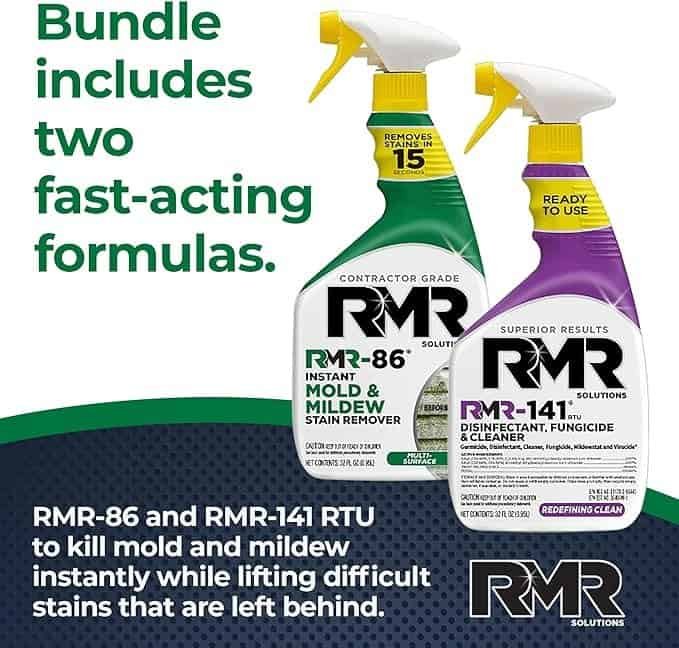Mold is a common problem in many households, and it can have a significant impact on the immune system. Exposure to mold can lead to a range of health problems, including respiratory issues, allergies, and infections. While it is impossible to completely eliminate mold from our environment, there are dietary strategies that can help combat its effects on the immune system.

Understanding the impact of mold on the immune system is crucial to developing effective dietary strategies. Mold can weaken the immune system by triggering an inflammatory response, which can lead to chronic inflammation and a range of health problems. Nutritional immunology is an emerging field that focuses on the relationship between diet and the immune system. By understanding the basics of nutritional immunology, individuals can develop a dietary plan that helps strengthen their immunity against mold.
Key Takeaways:
- Mold exposure can have a significant impact on the immune system, leading to respiratory issues, allergies, and infections.
- Nutritional immunology is an emerging field that focuses on the relationship between diet and the immune system, and can help individuals develop a dietary plan to combat the effects of mold on the immune system.
- Anti-mold diets, supplements, and lifestyle changes can all play a role in strengthening the immune system against mold.
Understanding Mold and Its Impact on the Immune System

Mold is a type of fungus that can grow in damp and humid environments. It can be found in homes, workplaces, and other indoor spaces. Exposure to mold can have negative effects on the immune system, which can lead to a range of health issues.
When mold spores are inhaled, they can trigger an immune response. This response can cause inflammation, which can lead to symptoms such as coughing, sneezing, and wheezing. For people with weakened immune systems, exposure to mold can be particularly dangerous. It can lead to infections and other serious health problems.
Mold can also produce mycotoxins, which are toxic substances that can have negative effects on the immune system. Mycotoxins can cause damage to cells and tissues, and they can also interfere with the body’s natural immune response.
To combat the effects of mold on the immune system, it is important to take dietary strategies that can help boost the immune system. A diet rich in fruits, vegetables, and whole grains can provide the body with the nutrients it needs to support a healthy immune system. Additionally, certain supplements such as Vitamin C, Vitamin D, and probiotics can also be helpful in supporting the immune system.
By understanding the impact of mold on the immune system and taking dietary strategies to combat its effects, individuals can help protect their health and well-being.
Nutritional Immunology: The Basics

Nutritional immunology is a field of study that examines the relationship between nutrition and the immune system. The immune system is a complex network of cells, tissues, and organs that work together to defend the body against harmful pathogens, such as bacteria, viruses, and fungi. A well-functioning immune system is essential for maintaining good health and preventing disease.
Dietary intake plays a critical role in supporting the immune system. Nutrients, such as vitamins, minerals, and antioxidants, are essential for the production and function of immune cells. For example, vitamin C is important for the development and activation of immune cells, while zinc is essential for the function of immune cells.
In addition to providing essential nutrients, certain foods can also have immunomodulatory effects. This means that they can help to regulate the immune system and prevent it from becoming overactive or underactive. For example, probiotics, which are found in fermented foods, can help to promote the growth of beneficial gut bacteria and improve immune function.
On the other hand, certain foods can have a negative impact on the immune system. For example, high levels of sugar and saturated fat can lead to inflammation and impair immune function. In addition, exposure to toxins, such as mold, can also have a negative impact on the immune system.
Overall, the relationship between nutrition and the immune system is complex and multifaceted. By understanding the basics of nutritional immunology, individuals can make informed choices about their diet and lifestyle to support a healthy immune system.
Key Dietary Components to Strengthen Immunity Against Mold
A healthy and balanced diet is essential for strengthening the immune system to combat the effects of mold. Here are some key dietary components that can help strengthen immunity against mold:
1. Antioxidant-rich foods
Antioxidants help to neutralize free radicals in the body, which can damage cells and weaken the immune system. Foods rich in antioxidants include berries, citrus fruits, leafy greens, and nuts.
2. Probiotic-rich foods
Probiotics are beneficial bacteria that help to maintain a healthy balance of gut flora, which is essential for a strong immune system. Foods rich in probiotics include yogurt, kefir, kimchi, and sauerkraut.
3. Vitamin D-rich foods
Vitamin D is essential for a healthy immune system, and studies have shown that a deficiency in vitamin D can increase the risk of respiratory infections. Foods rich in vitamin D include fatty fish, egg yolks, and fortified dairy products.
4. Omega-3 fatty acids
Omega-3 fatty acids are essential for a healthy immune system, and studies have shown that they can help to reduce inflammation in the body. Foods rich in omega-3 fatty acids include fatty fish, flaxseeds, and walnuts.
5. Zinc-rich foods
Zinc is essential for a healthy immune system, and studies have shown that a deficiency in zinc can increase the risk of respiratory infections. Foods rich in zinc include oysters, beef, and pumpkin seeds.
By incorporating these key dietary components into your diet, you can help to strengthen your immune system and combat the effects of mold on your health.
Anti-Mold Diet: Foods to Include and Avoid
Foods to Include
Certain foods can help combat the effects of mold on the immune system. These include:
- Probiotics: Probiotic-rich foods like yogurt, kefir, and sauerkraut can help promote a healthy gut microbiome, which can in turn support immune function.
- Antioxidant-rich foods: Foods like berries, leafy greens, and nuts are high in antioxidants, which can help reduce inflammation caused by mold exposure.
- Vitamin C-rich foods: Citrus fruits, bell peppers, and broccoli are all high in vitamin C, which can help support immune function.
- Omega-3 fatty acids: Foods like fatty fish, chia seeds, and walnuts are high in omega-3 fatty acids, which can help reduce inflammation and support immune function.
Foods to Avoid
On the other hand, there are also certain foods that can exacerbate the effects of mold exposure on the immune system. These include:
- Sugary foods: Mold thrives on sugar, so consuming excessive amounts of sugar can make mold-related symptoms worse.
- Processed foods: Processed foods are often high in preservatives and additives, which can further burden the immune system.
- Alcohol: Alcohol can suppress immune function, making it harder for the body to fight off mold-related symptoms.
- Dairy: Some people may be sensitive to dairy, which can exacerbate mold-related symptoms.
By incorporating these dietary strategies, individuals can help support their immune system and combat the effects of mold exposure.
Supplements and Their Role in Mold Defense
Probiotics and Antifungals
Probiotics are living microorganisms that can help restore the balance of good bacteria in the gut. They can also help boost the immune system and fight off harmful bacteria and fungi. Some probiotics have been shown to be effective against mold, such as Lactobacillus rhamnosus and Bifidobacterium bifidum. Antifungal supplements, such as grapefruit seed extract and oregano oil, can also help combat mold in the body. These supplements should only be taken under the guidance of a healthcare professional.
Vitamins and Antioxidants
Vitamins and antioxidants can help support a healthy immune system and protect the body from the harmful effects of mold. Vitamin C, for example, is a powerful antioxidant that can help reduce inflammation and support the immune system. Vitamin D is also important for immune function and can help reduce the risk of respiratory infections. Other antioxidants, such as glutathione and N-acetylcysteine (NAC), can help protect the body from the oxidative stress caused by mold exposure. It is important to note that supplements should not be used as a substitute for a healthy diet and lifestyle.
Strategies for Meal Planning and Preparation

When dealing with the effects of mold on the immune system, it is important to plan and prepare meals carefully. Here are some strategies that can help:
1. Choose Fresh and Organic Foods
Fresh and organic foods are less likely to contain mold and other toxins that can further weaken the immune system. When shopping for groceries, look for fresh produce, meats, and dairy products that are free from mold and other contaminants.
2. Avoid Processed and Packaged Foods
Processed and packaged foods often contain mold and other toxins that can worsen the effects of mold on the immune system. Instead, opt for fresh and whole foods that are minimally processed.
3. Cook and Store Foods Properly
Cooking and storing foods properly can help prevent the growth of mold and other harmful bacteria. Make sure to cook foods thoroughly and store them in airtight containers in the refrigerator or freezer.
4. Use Anti-Fungal Spices and Herbs
Certain spices and herbs have anti-fungal properties that can help combat the effects of mold on the immune system. Examples include garlic, oregano, and turmeric. Incorporating these ingredients into meals can help boost the immune system and reduce the risk of mold-related health problems.
5. Stay Hydrated
Drinking plenty of water and other fluids can help flush toxins from the body and support the immune system. Aim to drink at least 8 glasses of water per day, and consider incorporating herbal teas and other hydrating beverages into your diet.
By following these strategies for meal planning and preparation, individuals can help combat the effects of mold on the immune system and promote overall health and wellness.
Lifestyle Considerations and Complementary Practices
Exercise and Stress Reduction
In addition to dietary changes, incorporating regular exercise and stress reduction techniques can also help to support the immune system and combat the effects of mold exposure. Exercise has been shown to reduce inflammation and improve immune function, while stress reduction techniques like meditation and yoga can help to lower cortisol levels and reduce overall stress on the body.
To get started, individuals can try incorporating moderate-intensity exercise like brisk walking, biking, or swimming into their routine for at least 30 minutes a day, five days a week. For stress reduction, practices like deep breathing, mindfulness meditation, and yoga can be helpful.
Environmental Controls
In addition to lifestyle changes, environmental controls can also play a role in reducing the effects of mold on the immune system. This includes reducing humidity levels in the home, fixing any leaks or water damage promptly, and using air purifiers with HEPA filters to remove mold spores from the air.
Individuals can also consider using natural mold-fighting products like tea tree oil or vinegar to clean surfaces in their homes. Additionally, using a dehumidifier in damp areas like basements can help to prevent mold growth.
By incorporating these lifestyle considerations and complementary practices, individuals can take a comprehensive approach to combatting the effects of mold on the immune system.
Monitoring and Adapting Your Diet for Long-Term Health
Maintaining a healthy immune system is a long-term commitment that requires consistent effort. In order to combat the effects of mold on the immune system, it is important to monitor and adapt your diet over time.
One way to monitor your diet is to keep a food journal. This can help you track your intake of foods that may be contributing to mold exposure, as well as identify any patterns or triggers that may be affecting your immune system. Additionally, regularly monitoring your weight and energy levels can help you identify any changes in your health that may be related to your diet.
Adapting your diet for long-term health involves making sustainable changes that can be maintained over time. This may include incorporating more whole foods into your diet, such as fruits, vegetables, whole grains, and lean proteins. It is also important to limit processed foods, as they often contain additives and preservatives that can contribute to inflammation and weaken the immune system.
In addition, incorporating immune-boosting foods into your diet can help support your body’s natural defenses. These may include foods high in vitamin C, such as citrus fruits and leafy greens, as well as foods high in antioxidants, such as berries and nuts.
Overall, monitoring and adapting your diet for long-term health is an important step in combating the effects of mold on the immune system. By making sustainable changes and incorporating immune-boosting foods, you can support your body’s natural defenses and maintain optimal health over time.
Frequently Asked Questions
What dietary changes can support the body’s natural detoxification from mold exposure?
To support the body’s natural detoxification process, it is recommended to consume a diet rich in antioxidants, fiber, and nutrients. This includes eating plenty of fresh fruits and vegetables, whole grains, lean protein, and healthy fats. Additionally, staying hydrated by drinking plenty of water can help flush toxins from the body.
Which foods have anti-fungal properties that can help reduce mold levels in the body?
Certain foods have anti-fungal properties that can help reduce mold levels in the body. These include garlic, onions, ginger, turmeric, and coconut oil. Consuming these foods regularly can help support the body’s natural defenses against mold.
What supplements can assist in eliminating mold toxins from the system?
Supplements such as activated charcoal, chlorella, and bentonite clay can assist in eliminating mold toxins from the system. These supplements work by binding to the toxins and removing them from the body. It is important to consult with a healthcare professional before taking any supplements.
Can you outline a low mycotoxin diet that may help in reducing mold-related immune responses?
A low mycotoxin diet involves avoiding foods that are commonly contaminated with mold, such as peanuts, corn, and wheat. Instead, it is recommended to consume fresh, organic foods that are less likely to be contaminated. This includes fresh fruits and vegetables, lean protein, and healthy fats.
What is the most effective mold detox protocol involving diet and nutrition?
The most effective mold detox protocol involving diet and nutrition is a comprehensive approach that includes consuming a healthy diet, staying hydrated, and taking supplements as recommended by a healthcare professional. It is also important to avoid exposure to mold as much as possible.
How can inflammation caused by mold exposure be mitigated through dietary interventions?
Inflammation caused by mold exposure can be mitigated through dietary interventions such as consuming a diet rich in anti-inflammatory foods. This includes foods such as fatty fish, leafy greens, nuts, and seeds. Additionally, avoiding processed foods, sugar, and alcohol can help reduce inflammation in the body.














